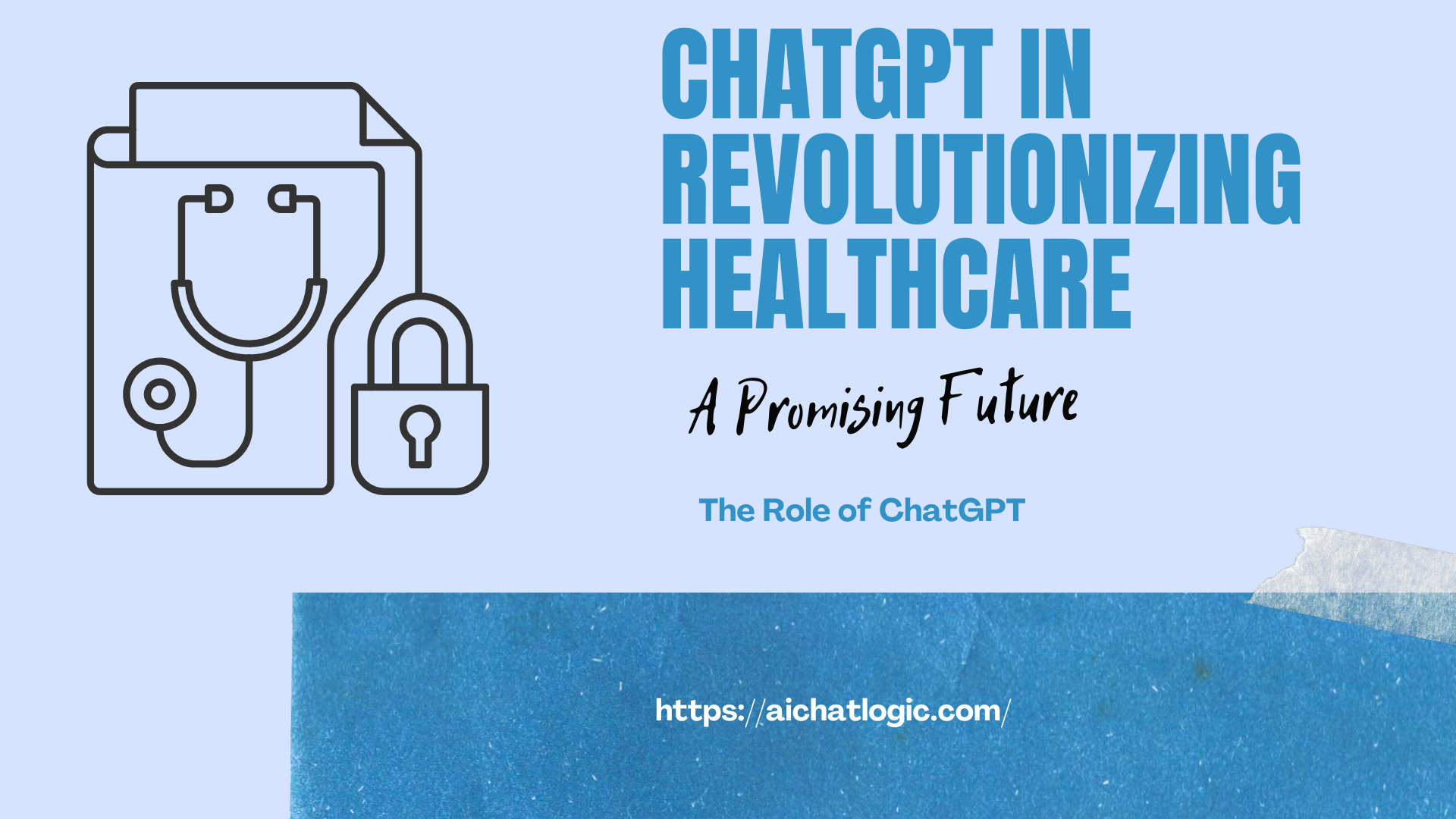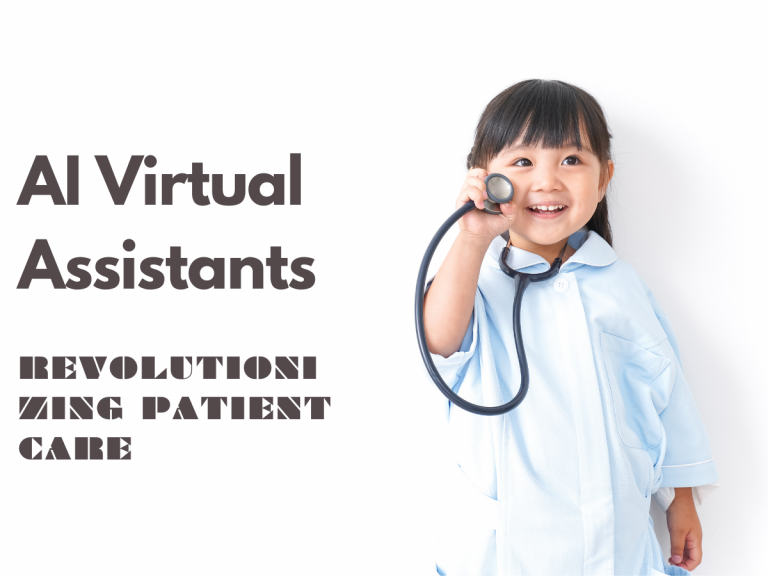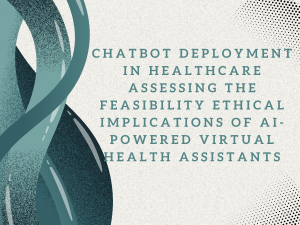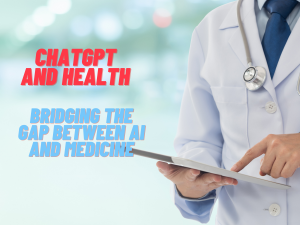1. Introduction
The healthcare industry is witnessing a transformative shift with the integration of artificial intelligence (AI) technologies. One such advancement is the emergence of ChatGPT, a state-of-the-art language model developed by OpenAI. ChatGPT, powered by deep learning algorithms, has the potential to revolutionize healthcare by enhancing patient engagement, streamlining medical diagnoses, empowering healthcare professionals, and contributing to the future of personalized medicine. This article explores the multifaceted role of ChatGPT in revolutionizing healthcare and its promising future.
2. The Advancement of ChatGPT in Healthcare
2.1 Enhancing Patient Engagement
ChatGPT has the capability to engage with patients on a conversational level, providing them with valuable information, answering their questions, and addressing their concerns. By leveraging natural language processing (NLP) techniques, ChatGPT can assist individuals in understanding their health conditions, medication instructions, and lifestyle recommendations. This interactive approach promotes patient empowerment and encourages proactive healthcare management.
2.2 Streamlining Medical Diagnoses
The accuracy and speed of medical diagnoses are critical for effective treatment. ChatGPT can be trained on vast medical datasets, enabling it to recognize patterns, symptoms, and potential diagnoses. When integrated into healthcare systems, ChatGPT can aid healthcare providers by providing preliminary assessments, suggesting differential diagnoses, and offering recommendations for further diagnostic tests. This can lead to improved patient outcomes and more efficient healthcare delivery.
2.3 Revolutionizing Telemedicine
Telemedicine has gained significant traction in recent years, allowing patients to receive medical consultations remotely. ChatGPT can play a pivotal role in telemedicine by serving as a virtual assistant to healthcare professionals during virtual appointments. It can assist in capturing patient histories, guiding physicians through examinations, and providing real-time information and resources. This integration of ChatGPT with telemedicine platforms has the potential to enhance the quality and accessibility of healthcare services.
3. Empowering Healthcare Professionals
3.1 Improving Clinical Decision-Making
ChatGPT’s ability to analyze vast amounts of medical literature, research papers, and clinical guidelines can empower healthcare professionals in making informed decisions. By quickly retrieving relevant information, ChatGPT can assist in formulating treatment plans, suggesting evidence-based interventions, and alerting physicians to potential drug interactions or adverse effects. This augmentation of clinical decision-making can lead to more accurate diagnoses and personalized patient care.
3.2 Assisting in Medical Research
Medical research requires extensive literature review and data analysis. ChatGPT can expedite these processes by assisting researchers in synthesizing existing studies, identifying knowledge gaps, and suggesting research methodologies. Moreover, ChatGPT can aid in data interpretation, statistical analysis, and the generation of research hypotheses. By leveraging the power of ChatGPT, medical researchers can accelerate scientific discoveries and improve medical knowledge.
3.3 Supporting Mental Health Professionals
Mental health is a crucial aspect of overall well-being, and ChatGPT can contribute significantly to the field. By providing a non-judgmental and empathetic virtual companion, ChatGPT can support individuals in managing their mental health, offering coping strategies, and providing resources for self-help. Mental health professionals can utilize ChatGPT to screen individuals for common mental health conditions, provide initial support, and make appropriate referrals when necessary.
4. Ethical Considerations and Challenges
4.1 Privacy and Data Security
As ChatGPT interacts with users and collects personal health information, ensuring robust privacy and data security measures becomes paramount. Strict data anonymization, encryption, and compliance with data protection regulations are essential to safeguard patient privacy. It is imperative for healthcare organizations and AI developers to adopt comprehensive security frameworks to protect sensitive healthcare data.
4.2 Bias and Algorithmic Fairness
AI systems like ChatGPT can inadvertently perpetuate biases present in the data they are trained on. Bias identification, mitigation, and algorithmic fairness should be integral parts of the development process. Transparent and diverse training datasets, coupled with ongoing monitoring and evaluation, can help address bias issues. Additionally, involving interdisciplinary teams in AI development can provide diverse perspectives and minimize inherent biases.
4.3 Impact on Doctor-Patient Relationship
While ChatGPT offers significant advantages, its integration into healthcare settings should not compromise the doctor-patient relationship. It is essential to strike a balance between the use of AI-driven technologies and maintaining the human touch in healthcare delivery. Healthcare professionals should be mindful of patients’ preferences and ensure that ChatGPT serves as a complementary tool rather than a replacement for human interaction.
5. The Future of ChatGPT in Healthcare
5.1 Integration with Electronic Health Records
Integrating ChatGPT with electronic health records (EHRs) holds immense potential for optimizing healthcare workflows. By analyzing patient data within EHRs, ChatGPT can assist in generating comprehensive medical summaries, identifying potential adverse events, and automating administrative tasks. This integration streamlines healthcare processes, reduces administrative burden, and enhances the overall efficiency of healthcare systems.
5.2 Personalized Medicine and Treatment Plans
The future of healthcare revolves around personalized medicine, and ChatGPT can contribute significantly to this paradigm shift. By analyzing patient data, genetic profiles, and environmental factors, ChatGPT can assist in tailoring treatment plans to individual patients. It can provide personalized medication recommendations, dietary guidelines, and lifestyle modifications, thereby optimizing patient outcomes and reducing the risk of adverse events.
5.3 Augmenting Medical Education
Medical education is a continuous process, and ChatGPT can be an invaluable tool for both aspiring and practicing healthcare professionals. It can serve as a virtual mentor, offering educational resources, case studies, and clinical decision support. ChatGPT can simulate medical scenarios, provide real-time feedback, and facilitate interactive learning experiences. This integration of AI in medical education prepares future healthcare professionals for the challenges of a rapidly evolving healthcare landscape.
6. Conclusion
The role of ChatGPT in revolutionizing healthcare is vast and promising. From enhancing patient engagement and streamlining diagnoses to empowering healthcare professionals and shaping the future of personalized medicine, ChatGPT’s potential is undeniable. However, ethical considerations, such as privacy and bias, should be addressed to ensure responsible AI deployment. With continued advancements and thoughtful integration, ChatGPT is poised to reshape healthcare delivery and improve patient outcomes.
FAQs
- How does ChatGPT assist in medical research? ChatGPT can aid medical researchers by analyzing vast amounts of literature, suggesting research methodologies, and assisting in data interpretation.
- Can ChatGPT replace human healthcare professionals? ChatGPT serves as a supportive tool for healthcare professionals but is not intended to replace human expertise and the doctor-patient relationship.
- What measures are taken to ensure patient data privacy? Robust privacy measures, including data anonymization, encryption, and compliance with data protection regulations, are implemented to safeguard patient data.
- How is bias addressed in ChatGPT’s algorithms? Bias in ChatGPT’s algorithms is mitigated through transparent and diverse training datasets, ongoing monitoring, and involving interdisciplinary teams in the development process.
- Will ChatGPT become a standard tool in medical education? ChatGPT’s integration in medical education provides valuable resources, simulations, and clinical decision support, making it a potential standard tool in the future.













+ There are no comments
Add yours